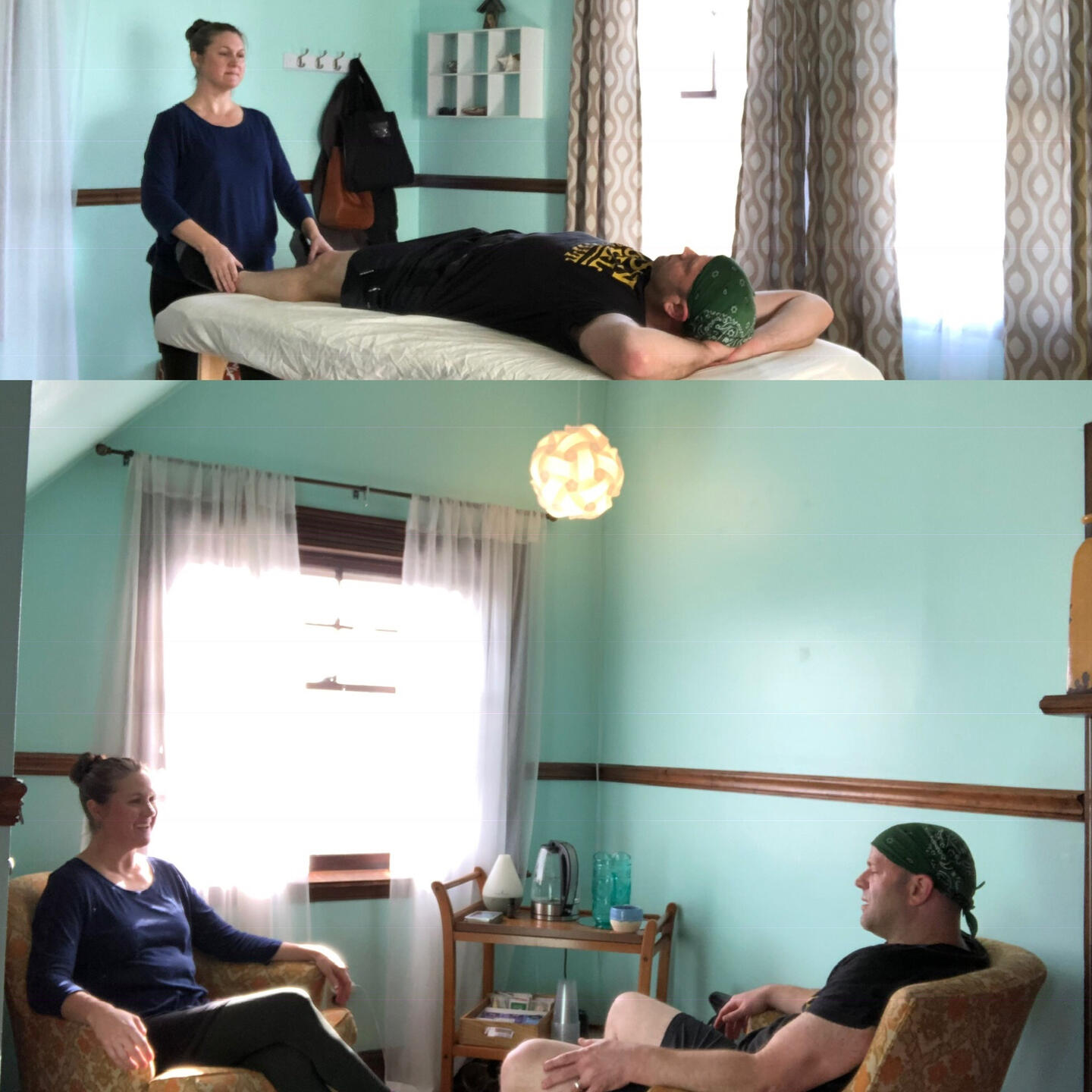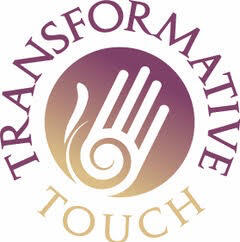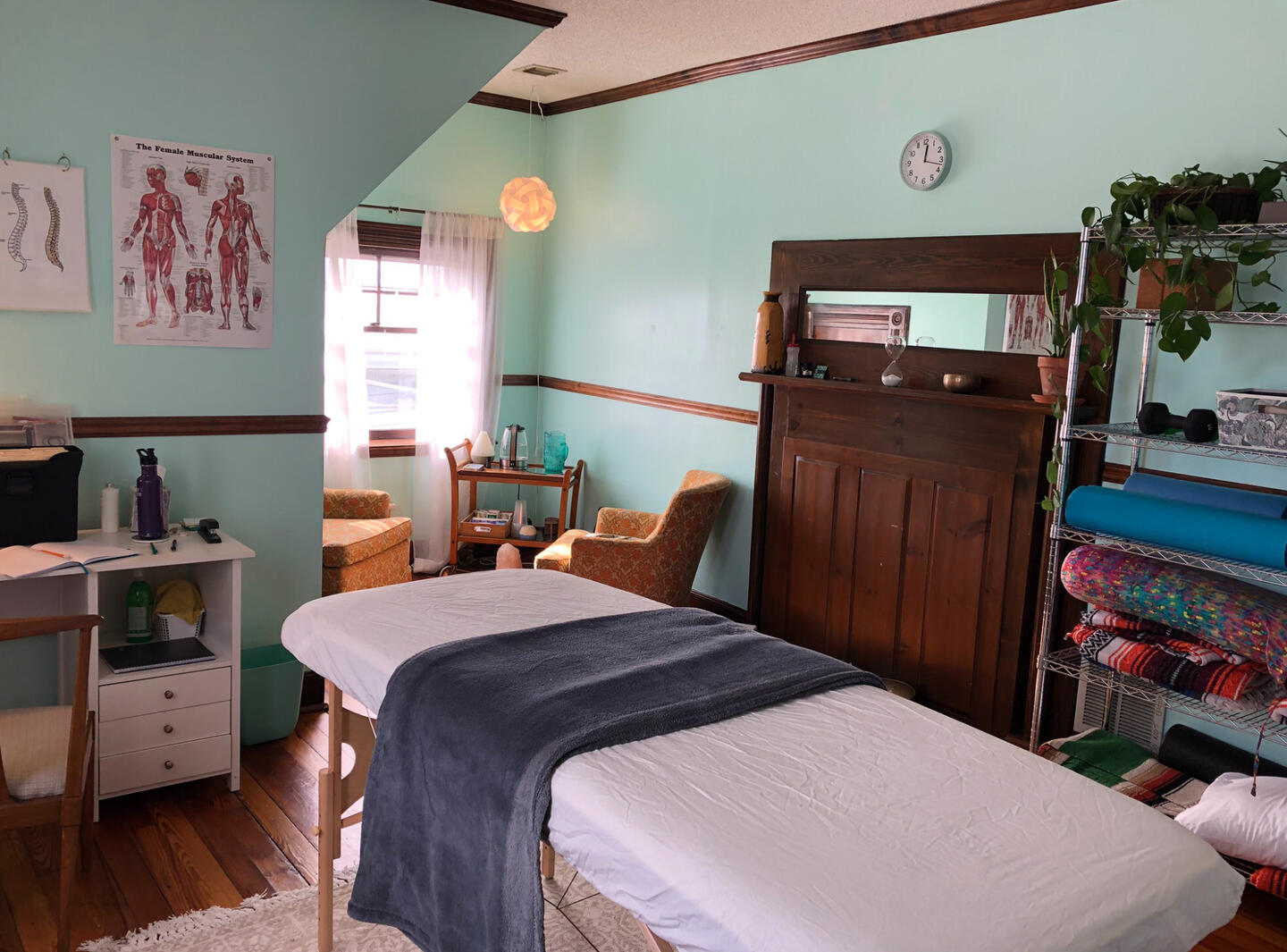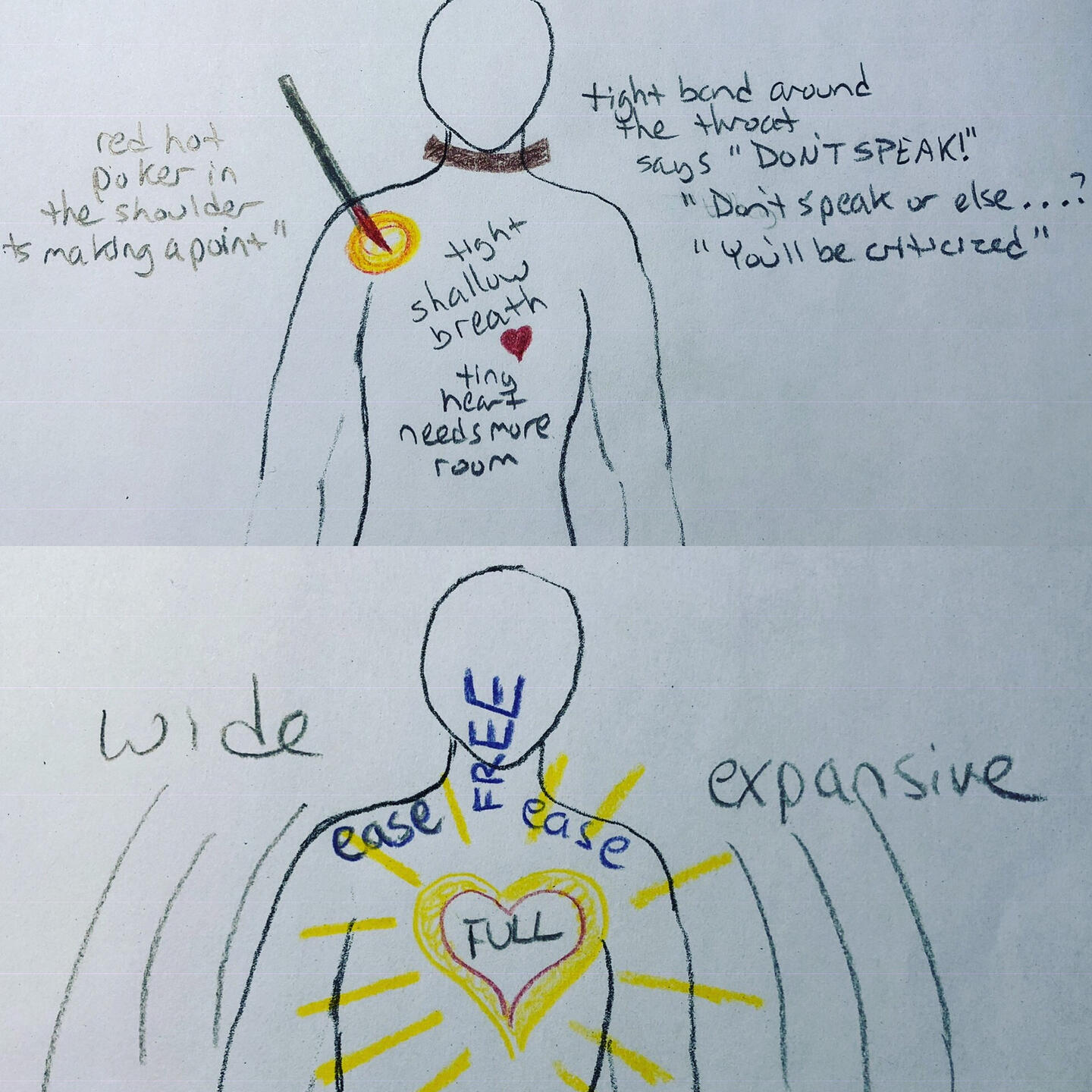Asheville Somatic Therapy
Suzanna Schott
MS CST-L3 CHWC
Emotion Focused Bodywork for Whole-Self Exploration
Stuck in patterns that cause you physical and emotional pain? Feel like there is a missing piece or deeper level that you can't quite access?I can help you bring the body into conversation, allowing a new perspective that sheds light on that "pain in the neck", "gut feeling" or the "heart of the matter."My approach combines gentle, non-invasive bodywork with verbal inquiry, mind-body education and coaching. Working collaboratively and experientially, we use the body as the primary lens for exploration of the self, and honor emotions as full body experiences. I offer a warm, compassionate presence and non-judgmental space to explore how your body is showing up in your life, and how your life is showing up in your body.Scroll down and explore the links above to learn more about me, as well as the science, art and heart of somatic therapy. I also welcome you to reach out for a free initial phone consultation.
"My sessions with Suzanna have been powerful. To anyone looking for a deeper exploration of their inner world, I highly recommend Suzanna as a fellow traveler and guide." - Whitney

WHAT IS SOMATIC THERAPY?
Somatic therapy is based in the principle that human beings are an inseparable combination of mind, body, heart and spirit. Neuroscience shows us that the nervous system interacts with all of our organs and tissues. What happens in the body affects the mind, and what happens in our minds affects our bodies. There are many types of somatic therapy, but the common thread is a focus on body awareness and body-based strategies for soothing the nervous system and finding resilience.My practice is grounded in Transformative Touch, a method of somatic therapy endorsed by the United States Association of Body Psychology (USABP). The process involves a combination of touch and supportive dialogue to help raise awareness of mind-body connections, identify habits that are leading to discomfort, find new inner resources and practice the care your body mind craves.

“Suzanna’s calm touch supported my comfort and sense of safety so I could sink deeply into my feelings and release them. My sessions left me feeling lighter, more balanced and open to incorporating more play and ease in my life.”
-Meghan
WHEN SHOULD I CONSIDER SOMATIC THERAPY?
Common reasons clients come to see me:
- Driven and high achieving people concerned about burnout
- Symptoms triggered by stress including persistent pain, fatigue, headaches, IBS, heart palpitations, hypertension, pelvic floor dysfunction, eczema, TMJ, and insomnia.
- Highly sensitive people who overwhelm easily, or have difficulty setting boundaries
- People who have difficulty making decisions or feel pulled in multiple directions
- Athletes interested in accessing greater resilience
- Artists who feel stuck or blocked
- People coping with physical manifestations of grief, loss, or relationship change
I work with adults who are essentially physically and psychologically healthy, but who would like additional support around an issue that is causing physical or emotional distress. My process is most effective for curious seekers who want to explore inner depths and optimize their lives, moving from just surviving to thriving. Some people have a specific physical complaint, and feel temporarily better after massage or other bodywork, but without lasting change. Some are experiencing grief, stress, or other emotional pain that they suspect is impacting them physically.
There are many types of somatic therapy that address different concerns. My training, experience and focus would NOT be a good fit for people with the following concerns (although other types of somatic therapy could be beneficial). If you are interested in healing from trauma, please see the FAQs for important information about my scope of practice.
Reasons to Pause:
- Aversion to touch
- History of sexual trauma
- Actively disordered eating
- Traumatic brain injury
- Active alcohol, substance, or sex addiction
- Borderline personality, narcissistic or other personality disorder
- Bipolar disorder or schizophrenia
- Suicidal thoughts
“Suzanna communicates warmth and acceptance with her voice and touch. Our sessions helped me to trust my changing body during pregnancy, to have patience with myself and more confidence as I approached my birth.” - Makenzie

SERVICES & FEES
Initial telephone consultation - FREE
Somatic therapy session - $105
Sliding scale fee is available for a limited number of clients with financial need

ABOUT ME
I bring to my somatic therapy practice the insight of a diverse professional background. I have a bachelor's degree in psychology and art. I also have a masters degree and national board certification in clinical genetic counseling. I have 15 years experience in that prior profession, helping individuals and families understand and adapt to hereditary disease and disability. After witnessing the way the bodymind is often neglected for people who have pain, I was drawn to a different professional path.When I experienced the power of somatic therapy in my own healing from persistent pain, I knew I wanted to find a way to offer it to others. I am certified as a level 3 practitioner in the Transformative Touch modality. In addition to Transformative Touch, I have studied Ortho-bionomy bodywork, Mindfulness Based Stress Reduction, the Community Resiliency Model, Organic Intelligence and Introductory Hakomi Method. I am also a certified health and wellness coach with a concentration in pain management and nervous system education.I blend these perspectives into my work with clients, but the true wisdom comes from you! You are the expert on you, and my job is to elicit inquiry and discovery of your inner guide. I’d be honored to facilitate and learn from your journey.More information about my training and credentials is available in the Referrals section. You can learn more about my philosophy and approach in Frequently Asked Questions.

CONTACT ME
Asheville Somatic Therapy
Suzanna Schott, MS, CST-L3, CHWC
828-357-7473
[email protected]
Office located in West Asheville
@somatictherapyasheville
Services and Fees
Initial telephone consultation - FREE
Somatic therapy session - $105
Sliding scale fee available for a limited number of clients with financial need.
FREQUENTLY ASKED QUESTIONS
What should I expect in a somatic therapy session?
Sessions begin with a face-to-face discussion and exploration of your experience of your body in a comfortable seated position. If and when you feel ready, work can move to a bodywork table and involve gentle touch. You are fully clothed during the session, and touch is non-invasive, respectful of boundaries and safety-sensitive.In the session we may engage in dialogue with the body or emotion, imagery, metaphor, breath exercises, use of pillows and props, and gentle movement. Sessions may also involve education about the neuroscience of pain and stress, self-assessment of pain triggers, nervous system mapping and resource identification, wellness goal setting and coaching.A typical session is 60 minutes long and involves about 15 minutes of discussion, 30 minutes of guided experience on the table, and 15 minutes of integration.Tuning in to the body is a little like learning a new language, which takes practice. In addition, we are building a relationship with each other and with your body over time. For those reasons, I find that clients get the most from the work when they come regularly, ideally every 1-3 weeks, over the course of several weeks or months.
What does "experiential" mean?
Somatic therapy is about being in the present moment with sensation and emotion. Instead of getting caught in the working of the mind, we bring attention to habitual patterns in the body, and practice using new resources in the body. Instead of repeating the stories about how much you need support, long to express yourself, or can't trust your intuition, you get to experience first hand what it is like when someone "has your back", when your "heart opens" and when you "know it in your bones." Together, we reacquaint you with your body as a friend and ally, discovering inner truths and resources that can guide and strengthen you.

Example notes during and after a somatic therapy session
Is this a good therapy for people who have had trauma?
Many people have heard that somatic therapy is effective for healing from traumatic experiences. However, it is important to know that there are many kinds of somatic therapy that can address different concerns, and each somatic therapist has different strengths and areas of focus.While I consider my practice to be trauma-informed, I am not a trauma specialist. "Trauma-informed" means that I understand the impact of trauma on the body, gentleness and safety are central, and if overwhelm occurs during a session, I can help clients navigate back to calm. All forms of somatic therapy help people practice body-based strategies to soothe and regulate the nervous system. However, I am not trained in methods that are specifically designed for treating PTSD, releasing traumatic memories, or overcoming aversion to touch. For people with recent or unaddressed severe trauma history, my approach could be counter-productive.A history of trauma doesn't rule out working together. I have special interest and training in helping people overcome chronic pain or other persistent physical symptoms, which can sometimes intersect with a history of trauma. However, I work best with clients who have already done some healing work, are generally comfortable with touch, and are ready to pursue new goals. If my practice particularly resonates for you, call me and let's discuss whether it is a good fit. Many factors will influence our decision, including how you define trauma and other practitioners on your wellness team. If we are not a good match, I can suggest different kinds of practitioners you can explore.
How is somatic therapy different from psychotherapy?
Although some psychotherapists are trained to incorporate somatic approaches, they are rarely trained in how to safely and supportively use touch. Touch can be a valuable tool, because it fast-tracks body awareness. The body doesn’t lie. If we can learn to pay attention, it may get us to the crux of the matter faster than talk alone.Somatic therapists are trained in when and how to use touch, and other techniques to engage the whole person in dialogue about what is contributing to physical or emotional pain. Somatic therapy asks: What is your body trying to tell you? What messages have you been sending to your body, with what impact? What habits contribute to discomfort? Can we find a different resource that serves you better?Somatic therapists are also trained to safely and supportively work with emotional and cognitive content as it arises in the body. While psychotherapy includes exploration of past experiences and correcting faulty thought patterns, dialogue in somatic therapy emphasizes present moment mindfulness of body sensation in relationship to thoughts and feelings.As a separate modality, somatic therapists do not diagnose or treat specific mental health conditions, behavior change or addiction. There may be times when a somatic therapist will recommend additional support, and collaborate with other practitioners. Somatic therapy can be a wonderful stand-alone, or a complement to psychotherapy to expand from the stories of the mind to the wisdom of the body.
Is somatic therapy a type of massage?
Somatic therapy can complement and blend with massage. But there are differences in our skillset, therapeutic goals and techniques.One difference is in the way touch is used. In the Transformative Touch modality, touch may be used to raise awareness, stabilize, ground or regulate, to reinforce connection and support, among others. But we do not apply pressure or manipulate soft tissue to produce a state of relaxation or correct structural dysfunction. Many clients do end a session with more ease, energy or freedom of movement, because the simple process of gentle touch, movement and awareness can have a profound effect. An added benefit of somatic therapy is that the session often ends with personal insight.Which brings me to the second major difference with massage. Somatic therapy involves intentional emphasis on the mind-body connection. All body work accesses this in one way or another, and many massage therapists have training in fundamental concepts of somatic psychology. In somatic therapy, we aim to make this connection explicit so that habits that lead to discomfort can be shifted, and body, heart and spirit are more integrated. Somatic therapy uses dialogue to actively engage the wisdom and resources of the client, and we are trained specifically to work with the emotional and cognitive content that arises in the body, in a safe, supportive and therapeutic way
Is somatic therapy a type of energy work, like Reiki?
We may discuss flow and energy in a somatic therapy session, focused on how those concepts show up in the physical body. But Transformative Touch somatic therapy does not involve intentional manipulation of a person’s chi or aura. Instead, we use direct touch and other techniques to raise awareness and enter into dialogue with the body, to learn what messages and wisdom it has for the client. Somatic therapy is hands-on, active, and participatory; involving sensation, movement, imagery, sound, metaphor, discussion and exploration.Because somatic therapy is based in the principle that mind, body and spirit are one, we may engage with spiritual and energetic content in a session. However, the aim of somatic therapy is not transcendence. Rather, we attempt to help you feel more embodied and grounded, to enable you to more fully engage in life and the richness of the here and now on this planet.Somatic therapy may sound like energy work because we deal with the seemingly abstract concept of the body-mind connection, but in fact that connection is not so abstract. Read more below to learn more about the science of mind-body connections.
Does “somatic” mean you think my pain or discomfort is “all in my head”?
One of my mentors, Dr Howard Schubiner, says “Anyone who thinks you are pretending or imagining pain is either ignorant, cruel, or both.” The experience of pain is real, associated with physiologic changes. However, an under-appreciated fact is that the “mind” is part of the physiology of pain.While acute injury is often the start of pain, medical imaging and neuroscience has shown that most persistent pain is not due to ongoing tissue damage, but the protective part of the brain and nervous system that has become overly sensitive. It isn’t a conscious process that someone chooses. And it causes very real physiological changes (blood flow, muscle tension, neurotransmitters and hormones) that turn the volume up on ordinary sensation and contribute to pain. Physiological, but not pathological. And therein lies the good news!The nervous system can be re-trained, and the relationship with the rest of the body re-balanced. In somatic therapy, we aim to “listen to the body’s whispers so that it doesn’t have to scream” (another gem from a different mentor, Jessica Mark). Somatic therapists consider pain to be a messenger and opportunity.That is what “somatic” means: coming back to an integrated wholeness of mind, body and spirit. We can access the emotional life through the body with touch, attention to sensation, and movement. We can access physiology through the mind with dialogue, meditation, visualization and cognitive exercises. Put together, bodywork with dialogue, are the “therapy” part of somatic therapy
What is the science behind somatic therapy?
The Transformative Touch modality uses evidence-based techniques rooted in functional anatomy; theories from body psychology such as the polyvagal theory and attachment theory; neurobiology, neuroplasticity and medical imaging studies; and research on the impact of mindfulness and mindset on health.More and more research is supporting the physiology of the mind-body connection. Consider that neurochemicals like dopamine, serotonin and oxytocin are active not just in the brain, but all over the body, including the heart muscle. When there are as many nerve cells in the gut as in the spinal cord, where does the mind end and the body begin? And, via the vagus nerve, the pathways of communication go both ways, from brain to body and from body to brain. Somatic therapy takes advantage of these links.The field of somatic therapy is growing, and organizations like the US Association of Body Psychology advocate for more research to support and differentiate the various somatic modalities. Until things like blinded clinical trials are available, my attitude is, if it works for you, then its working for you!
Is somatic therapy just the placebo effect?
The word placebo has become a dirty word in healthcare, used to dismiss mind-body approaches as “non-scientific”. But the placebo effect is an EFFECT! Put simply, the placebo effect refers to the phenomenon that one’s mind-set or expectations can create a physiologic change that helps to relieve symptoms. (There is also a “nocebo” effect, in which negative expectations contribute to worsening symptoms). Research on placebos has shown that they not only change subjective report of symptoms, but also physiologic markers such as hormone levels, neurotransmitters and brain and nerve activity. It isn’t just imagination.
The research on placebos makes it clear that our bodies have their own internal pharmacy that can be activated to help us heal, sometimes even boosting the healing effects of medications and other treatments. My theory is that somatic therapy and other alternative healing modalities are effective in part because they remind our brains and bodies of their capacity to heal. In my opinion, all health/helping practitioners should do whatever they can to boost the placebo effect and reduce the nocebo effect.
What is pain coaching?
Coaching is essentially a series of conversations about change, in which we work together to find practical steps you can take to find relief. I am trained in the biopsychosocial model of pain management, based on evidence from neuroscience that shows the ways that our emotions, relationships, behaviors and physiology interact to contribute to both pain and relief. Persistent pain is actually something the nervous system has learned, and it can be unlearned. Pain coaching focuses on new habits and strategies that harness the ability of the nervous system to "rewire" and "retune" (called neuroplasticity).
Referrals
Somatic therapy and pain coaching can be wonderful stand-alone practices, or adjuncts to psychotherapy, physical therapy, massage, chiropractic care, and wellness coaching. In addition, somatic therapy can be supportive for addressing the mind-body components of common stress-triggered ailments that bring patients to primary care. I welcome you to contact me to discuss whether I would be a good fit for your client or patient.Please see below for information on my scope of practice and training, the home page for information on indications and contraindications for my practice, and the FAQs for important information on my scope of practice for clients with a trauma history. My most successful clients are comfortable with touch, have done some healing work previously, and already have a hunch that there is a link between their symptoms and their emotions. I'd be happy to suggest language you can use with your patients or clients to help them buy-in to the value of exploring mind-body connections, and the FAQ section includes some of that language.I work only with adults.I do not work with insurance, but I do have a sliding scale fee structure for a limited number of clients with financial need.
Scope of Practice and Training
I have a bachelor's degree in psychology with an emphasis on neuroscience, and a master's degree in clinical genetic counseling. That counseling training involved 2.5 years of didactic and supervised clinical patient work, and included basic empathic attending skills, short term problem-focused psychosocial counseling skills, decision-making support, patient education and adult learning theory, grief counseling, disability psychology and impact of illness on family dynamics.I am a level 3 certified practitioner of the Transformative Touch modality, one of the touch + talk therapies endorsed by the United States Association of Body Psychology (USABP). That training involved 3 years of didactic work and supervised client sessions. Transformative Touch is informed by attachment theory, polyvagal theory, mindfulness practices, psycho-neuro-endocrinology, functional anatomy, experiential body psychology, neurobiology and neuroplasticity. To maintain my certification, I follow a professional code of ethics, receive ongoing mentoring from an advanced certified somatic therapist and receive annual continuing education. In addition to Transformative Touch I have studied, but do not have a professional certificate for, several other methods including: Ortho-bionomy bodywork, Mindfulness Based Stress Reduction, the Community Resiliency Model, Organic Intelligence and Hakomi Method.My training qualifies me to safely facilitate exploration of emotions, beliefs and life experiences in the context of the body experience. I am not a licensed mental health provider, and I do not diagnose or treat specific mental health conditions. In some cases, I may recommend that clients also work with a mental health therapist or other type of health care provider.My training also qualifies me to safely incorporate touch into explorations. The intention of touch is to communicate support, nurture, presence and to promote self-awareness. The touch is non-invasive, with no tissue pressure, and the client is fully clothed. I am not a licensed massage therapist or physical therapist, and I do not diagnose or treat specific soft tissue dysfunction.I am also a certified health and wellness coach with a specialty in pain management. That training involved another year of didactic and supervised client contact, and was informed by pain neuroscience, coaching and behavior change psychology, and motivational interviewing. In the course of my work with clients, we may explore wellness goals and insights about ways to achieve healing. I am qualified to provide basic education about the nervous system and the biology of mind-body connections. I am not a licensed health care provider and clients are instructed that our discussions should not be considered medical advice. Clients are advised that it is their responsibility to reach out to a health care provider to rule out the possibility that their symptoms are associated with a serious health condition, and to ensure that any wellness resources and practices pursued are safe and effective.